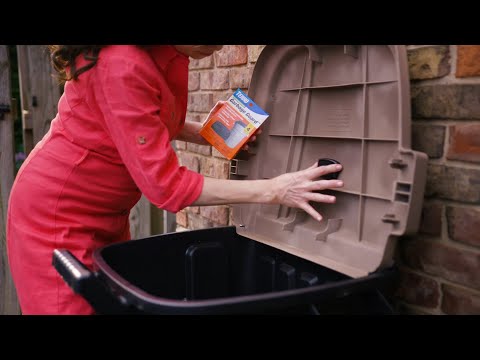How to Get Rid of Flies in Trash Can
Few household nuisances are as irritating as opening your garbage bin only to find it swarming with flies. These tiny intruders don’t just look unpleasant—they can also spread germs, create foul odors, and make daily chores a headache. If you’ve been wondering how to get rid of flies in trash can once and for all, you’re in the right place. With practical cleaning tips, natural remedies, and expert insights from Hoss Junk Removal, you’ll discover how to keep your trash cans fresh, clean, and fly-free.
How to Get Rid of Flies in Trash Can: Starting with Prevention
The best way to tackle a fly problem is to prevent it from starting. Flies are naturally drawn to the scent of food waste, sticky residues, and damp conditions inside your trash cans. To effectively eliminate them, start by regularly cleaning your trash bin and making sure garbage bags are tied securely. A simple rinse with soap and hot water can do wonders, but adding natural deterrents like vinegar or peppermint oil boosts your defense against pests.
Hoss Junk Removal often reminds homeowners that prevention is the ultimate form of control. By maintaining clean and sealed bins, you cut off the flies’ food source before they even show up.
Why Flies Love Trash Cans?
Trash cans are a magnet for pests because they provide everything flies need—warmth, moisture, and decaying food. When garbage sits for too long, it becomes the perfect breeding ground for maggots, which eventually hatch into more flies. Left unchecked, your garbage bins can quickly turn into a full-blown infestation.
At Hoss Junk Removal, we’ve seen how quickly a single overlooked bag of garbage can attract flies. Understanding what draws them in makes it easier to eliminate the problem at its source.
Eliminate Odors to Stop Flies
One of the fastest ways to stop flies is to focus on odor control. Flies have an excellent sense of smell, and rotting garbage bags release scents that pull them in from afar. To combat this, sprinkle baking soda at the bottom of your trash bin or spray a vinegar solution inside the can after each cleaning. These natural deodorizers not only combat odors but also repel flies from lingering.
If foul odors have already built up, Hoss Junk Removal recommends a deeper clean—scrubbing the bins with disinfectant and letting them dry in the sun for maximum freshness.
Using Vinegar and Natural Sprays
When people ask how to get rid of flies in trash can without harsh chemicals, vinegar always comes up as a top solution. Mix equal parts vinegar and water in a spray bottle, and use it to clean your garbage bin after removing the trash. For an added punch, a few drops of dish soap or peppermint oil can help kill and repel lingering flies.
Hoss Junk Removal suggests keeping a spray bottle handy, especially in the summer months when flies multiply rapidly. A quick spray after tossing garbage can stop flies from gathering.
Garbage Bins: Cleaning and Maintenance Tips
Clean bins are your first line of defense against pests. Regularly washing your garbage bins ensures that no sticky residue or rotting food waste is left behind. Always use sturdy garbage bags that don’t rip easily and double-bag when disposing of particularly smelly waste.
At Hoss Junk Removal, we emphasize the importance of maintaining a clean bin routine. Not only does it keep flies away, but it also helps prevent mold, bacteria, and other pests from spreading inside your home.
Trash and Food Waste Management
Improper food disposal is one of the leading causes of fly infestations. Leftover fruit, vegetables, and other waste materials quickly attract flies, especially fruit flies. To keep pests away, wrap food scraps tightly before tossing them and avoid leaving garbage bags sitting open inside or outside your trash bin.
Hoss Junk Removal often helps customers by providing junk and debris removal services that prevent garbage from piling up. By keeping your property clear of excess waste, you’re taking a big step toward effective pest control.
How to Eliminate Maggots from Your Trash Bin?
If you’ve already noticed maggots in your bin, don’t panic—there are effective ways to eliminate them. First, remove all trash and garbage bags. Next, pour boiling water into the empty trash can to kill any remaining larvae. Afterward, scrub the bin with a strong vinegar or disinfectant solution to stop new infestations from forming.
Hoss Junk Removal recommends following this with thorough drying and leaving the lid off in direct sunlight. Flies thrive in damp, dark conditions, so a dry, sunny bin is your best weapon against them.
How to Control Flies Around Outdoor Garbage Bins
Outdoor garbage bins are especially vulnerable to pests. To keep flies under control, always keep lids tightly closed, avoid overfilling, and store bins in shaded areas away from direct sunlight. You can also sprinkle lime powder at the bottom of outdoor bins, which naturally repels flies and reduces odors.
For customers dealing with large amounts of junk or garbage, Hoss Junk Removal provides fast and reliable pickup services, ensuring outdoor bins don’t overflow and become a pest hotspot.
Trash Can Hacks: Quick Ways to Stop Flies
Sometimes small changes make the biggest difference. Line your trash bin with old newspaper to absorb moisture, use scented garbage bags for odor control, and sprinkle salt or baking soda at the bottom of your bin after every cleaning. These simple tricks make it harder for flies to find a comfortable breeding ground.
Hoss Junk Removal believes in giving homeowners practical, affordable ways to maintain a clean and pest-free home without relying solely on chemical sprays.
Professional Help for Garbage Control
If you’ve tried every DIY method and still can’t rid your trash cans of flies, it may be time to call in the professionals. While cleaning and sprays go a long way, persistent fly infestations may require a more thorough solution. That’s where Hoss Junk Removal comes in. From removing excess waste to deep cleaning bins and offering long-term garbage control strategies, their team provides dependable help to keep your home pest-free.

